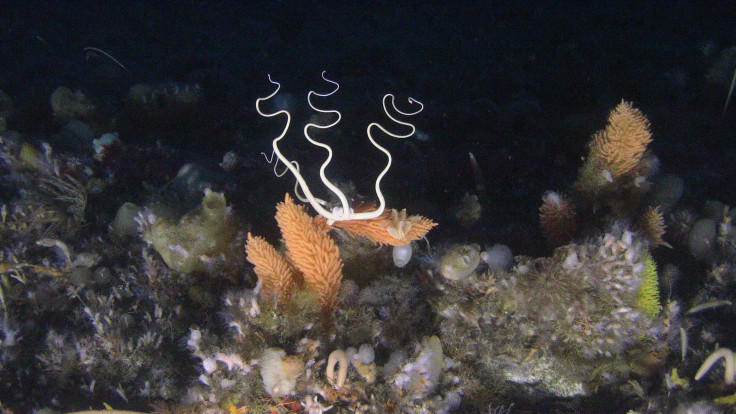12 New Species Found In The Deep Atlantic; Climate Change Threatens Their Existence
KEY POINTS
- New species have been discovered in the ocean floor of the Atlantic Ocean, including moss animals
- Climate change, pollution and human exploitation continue to threaten the existence of various species
- Scientists are urging the public to fill the gaps of knowledge when it comes to Earth's oceans and their respective environments
At least 12 new deep-sea species have been discovered in the Atlantic Ocean, and scientists are keen to save them from the effects of climate change.
After almost five years of studying the ocean floor of the Atlantic, the Atlas Project team discovered at least 12 new species in some "special places" they found during their exploration. Among the species discovered by researchers is a coral growth called Epizoanthus martinsae, which lives on black corals up to 400 meters below the ocean surface.
Scientists also found a moss animal, or bryozoan, called Microporella funbio in an undersea mud volcano off the Spanish coast. Antropora gemarita, a moss animal that feeds on particles of food suspended in the water, has also been added to the list of newly discovered deep-sea species.
George Wolff, an ocean chemist at the University of Liverpool, said the feat was not an easy task to achieve, noting that it has been difficult to navigate their way through the mysterious ocean floor — a place still widely unexplored.
"We can still say we have better maps of the surface of the Moon and Mars than of the seafloor," he told BBC News. "So whenever you go to the deep ocean, you find something new - not just individual species but entire ecosystems."
However, a bigger problem is still largely present, one that has been endangering all living beings on Earth and is constantly looming over each ecosystem: climate change.
The project team found that about half of cold-water coral habitats were at risk from climate change as oceans absorbed up to one-third of the carbon in the atmosphere, which could result in the sea becoming slightly more acidic. Further, ocean acidification and fisheries pose a risk to around 19% of deep-sea ecosystem services.
Murray Roberts of the University of Edinburgh, who led the Atlas Project, said that five years of studying these species has led them to understand their behavior and how they respond to various external factors.
"We found whole communities formed by sponges or deep ocean corals that form the cities of the deep sea," Roberts explained. "They support life. So really important fish use these places as spawning grounds."
"If those cities are damaged by destructive human uses, those fish have nowhere to spawn and the function of those whole ecosystems is lost for future generations," he continued. "It's like understanding that a rainforest is an important place for biodiversity on the land; the same is true of the deep sea - there are important places that need to be protected and, crucially, they are all connected."

The Atlas Project, as it is called, has been led by Prof Roberts along with other researchers from 13 countries around the Atlantic. Part of the Atlas Project's objectives includes combining ocean chemistry and physics, as well as biological discovery to learn how the ocean environment has been responding to the effects of climate change as well as human exploitation.
One of the project's discoveries revealed that the major currents in the North Atlantic have dramatically slowed down due to climate change.
"The implications of that are complicated, but potentially the connections between ecosystems are being reduced," Prof Roberts explained because ocean currents are the highways that link different habitats together in the vastness of the deep ocean.
Prof Wolff and Prof Roberts are only a few of the growing number of advocates in saving the Earth's oceans.
With a growing global population, a consistent rise in pollution, and human activities that harm various ecosystems, marine scientists say it is vital for citizens to fill the gaps of knowledge when it comes to Earth's oceans and their respective environments, as it is something that affects not only a certain part of the world but all who live in it.
© Copyright IBTimes 2025. All rights reserved.





















